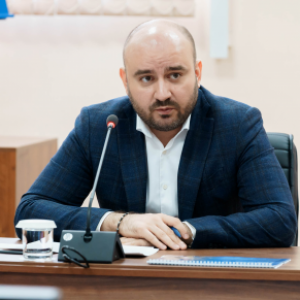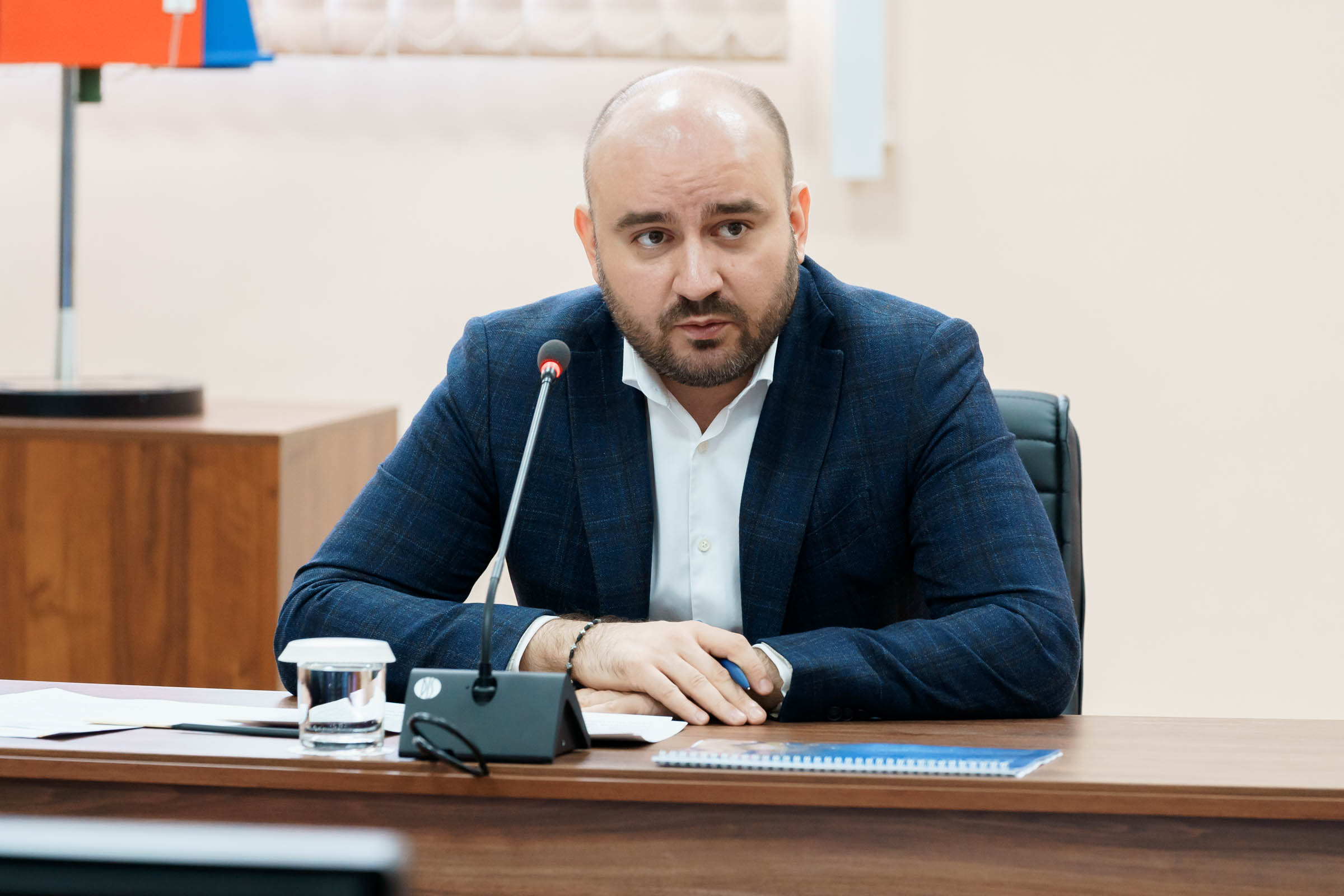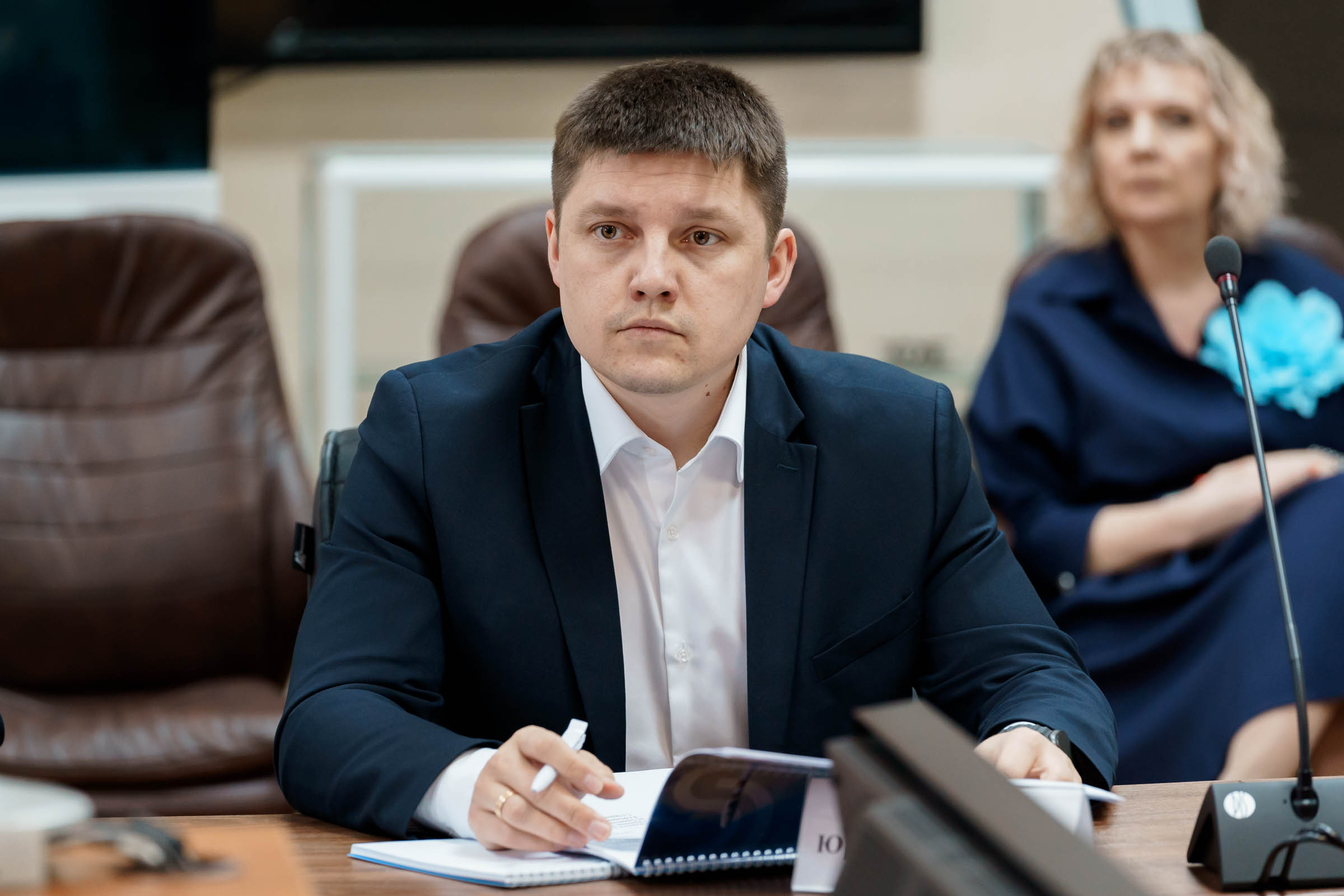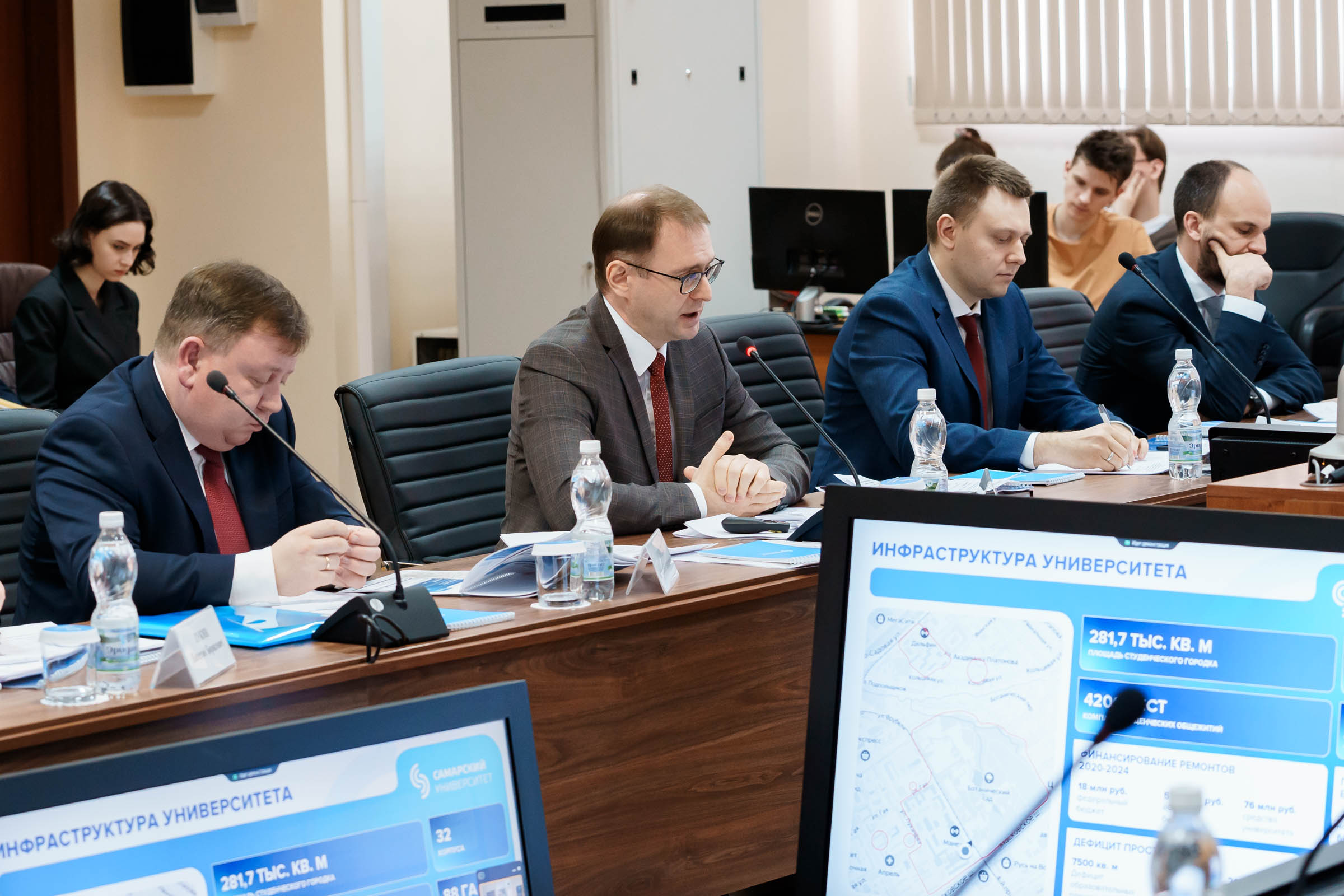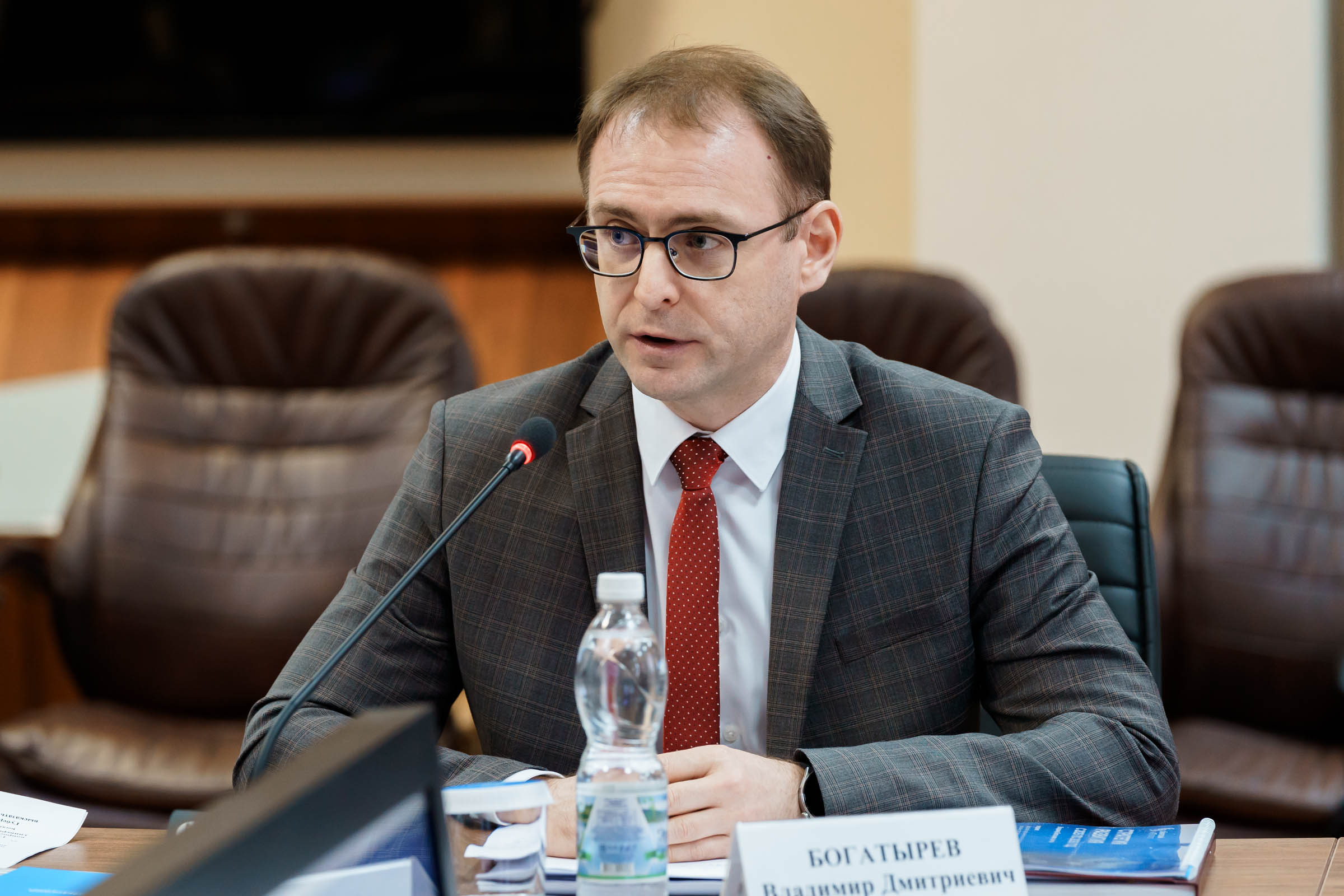On April 11, on the eve of Cosmonautics Day, the meeting of the Supervisory Board of Samara National Research University was held under the chairmanship of Vyacheslav Fedorishchev, Governor of the Samara Region. It was devoted to discussing the adjusted University Development Strategy for 2025–2030, indicating individual development prospects until 2036.
The head of the region congratulated everyone present on upcoming Cosmonautics Day and stressed that the Samara Region has been, is and will be the country’s centre of cosmonautics development.
"We are closely following all the trends in developing the space industry in the world and see that our country remains one of the leaders. Meanwhile, there are decisions that need to be made right now. And there are practices that need to be implemented at the level of school, secondary, and higher educational institutions. Our task is allotting all the resources we have to the systematic, progressive development of the space industry", said Vyacheslav Fedorishchev.
Denis Sekirinsky, Deputy Minister of Science and Higher Education of Russia, joined the congratulations and highlighted three important components that a modern university should take over.
Firstly, it is connecting with the real sector of the economy and interacting with companies that work in this field. Secondly, it is closely interacting with the academic sector and academic research centres. And thirdly, it is interacting with secondary educational institutions, working with schoolchildren.
"To my mind, the assistance and support of the government of the Samara Region can play a crucial role in organizing this interaction", emphasized Denis Sekirinsky.
Vladimir Bogatyrev, Rector of Samara University, recalled that the University’s Development Strategy was developed in 2020 for a 10-year period, and it took into account both the opinion of the government of the Samara Region and the interests of industrial partners, including the State Corporations "Roscosmos" and "Rostec".
"Today we have revised this program document. We took into account the five-year experience of its implementation, the national goals approved by the President of Russia, and the updated strategic documents of the Samara Region. When adjusting the Strategy, we considered new national projects launched in 2025", said Vladimir Bogatyrev.
The planning period of Samara University’s Development Strategy is defined until 2030, indicating individual prospects that are scheduled to have been achieved by 2036.
Summing up the results of the five-year period of the Strategy's implementation, Vladimir Bogatyrev recalled that all this time the University had been an active participant in the National Projects "Science and Universities", "Education", "Digital Economy" and others. Its research structure was complemented with 5 youth laboratories, the Design Bureau "Hydrogen SM", the Propulsion Engineering Design Bureau, the Additive Technology Production Centre, the Engineering Centre, and the Institute of Artificial Intelligence. The University became the operator of Russia’s first agricultural carbon landfill "Agro Engineering", and the Centre for Unmanned Systems was rerun.
Samara University joined the Federal Project "Advanced Engineering Schools" in the first wave. The University established the Advanced Aerospace Engineering School (AAES), where the new model of engineering education, based on the concept "digital factory", is being formed, and the first group of engineers has already graduated.
Within the AAES, 17 new modern educational spaces and two experimental production facilities — cyber-physical factories — have been established. For 3 years, the grant financing amounted to 653 million rubles, meanwhile extra-budgetary financing in the amount of 377 million rubles was raised as part of the completed research.
Over the past four years, the University has been a participant in the Program "Priority 2030". During this time, 571 million rubles of federal funds were received in the form of grants and 82 million rubles were received from the budget of the Samara Region. Within this program, three areas, in which All-Russian competence centres have been created and are being developed, have been identified. These are aerospace technologies, energy engineering and engines, as well as photonics, geoinformatics and information technology.
In the pool of Samara University’s industrial partners, there are the largest state corporations and enterprises in the real sector of the economy.
Then Vladimir Bogatyrev focused on the federal-level programs and projects that Samara University will have implemented on the horizon of 2025–2030.
In particular, in the new National Project "Unmanned Aviation Systems", the University has become a provider of the educational programs and is conducting research on reducing fuel consumption. The National Project "Data Economy" creates mainframes using artificial intelligence technologies in the interests of the company "Transport Budushchego". The laboratory for quantum communications has also been opened, and the University will join the IUQN — the Interuniversity Quantum Network.
Within the National Project "Space", the University implements 4 research projects, and also participates in the National Projects "Youth and Children", "Production of Transport", "Automation Tools".
"At present, under the new national projects, Samara University has already contracted works worth over 2 billion rubles. In the new five-year plan, we are also going to focus on our own production of high-tech products. We have a groundwork — vibration isolators, quadcopters, and additive manufacturing of parts. In future, we plan to expand producing components for drones and small spacecrafts", said the rector Vladimir Bogatyrev.
In the field of education, the rector announced the increase in the number of students from 18 to 20 thousand people, as well as the expansion and transformation of additional professional education (APE).
"The program for transforming the APE includes the digital platform, the launch of electronic sales, which will allow fulfilling the task of quickly providing with the personnel within the National Projects "Unmanned Aviation Systems", "Personnel", "Efficient and Competitive Economy", etc. This will allow us to enter the TOP 10 universities in terms of incomes", predicted Vladimir Bogatyrev.
The rector also spoke about the plans for maintaining and renovating the campus infrastructure, which now includes 32 buildings and 12 student hostels with their total area of 260 thousand m2. In particular, he said that the university had sent the applications withing the comprehensive renovation program "800 student hostels".
Discussing Samara University’s Development Strategy, the members of the Supervisory Board made interesting assessments and a number of valuable suggestions. Yury Kozarenko, General Director of "Transport Budushchego" LLC, for example, highly appreciated the outcomes of cooperating with the University in terms of designing robotic lines for the drone production. However, he suggested paying special attention to developing the area "Robotics", as well as expanding the teams working in the field of artificial intelligence.
Aleksey Sobolev, Deputy General Director and Managing Director of PJSC "UEC Kuznetsov", positively assessed the cooperation with the university within the Educational Program "Wings of Rostec", and noted the high capacity of this program, as well as the Initiativeness and good education of the students to be trained under it. The head of the engine-building enterprise suggested that the University should pay more attention to developing its research and technical capacity.
"Samara University has research and technical groundworks, and there are other opportunities for participating in designing breakthrough products. Let it be small-scale propulsion engineering or some other area to be in demand. Here, we see a huge capacity that needs to be strengthened and developed", said Aleksey Sobolev.
Governor Vyacheslav Fedorishchev also positively assessed Samara University’s adjusted Development Strategy. The members of the Supervisory Board approved the document, with its text to be sent to the Ministry of Science and Higher Education of the Russian Federation.
